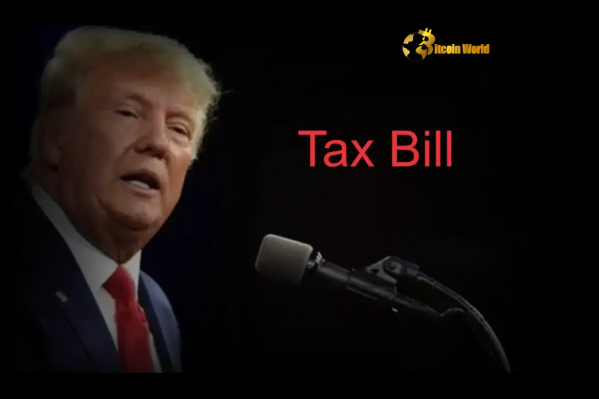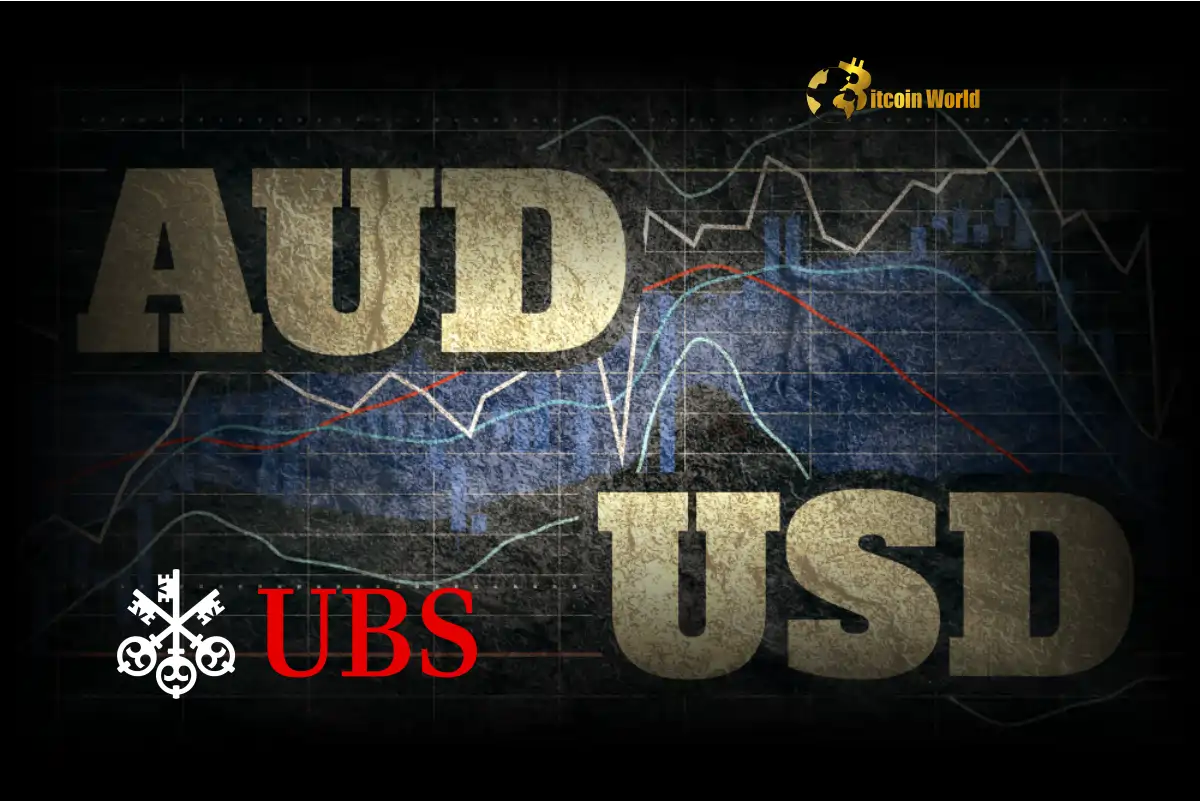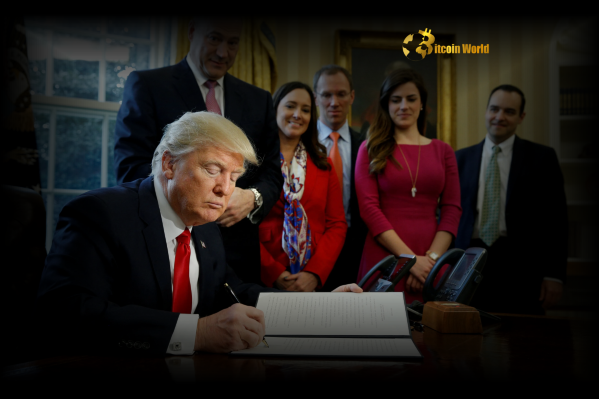BitcoinWorld

US Dollar: Crucial Impact of Trump Tax Bill on Forex Market
In the ever-shifting landscape of global finance, currency movements often signal deeper economic currents. Recently, the US Dollar has found a moment of stability after experiencing a period of sharp losses. For those tracking markets, including the dynamic world of cryptocurrencies, understanding these macroeconomic shifts is crucial. All eyes are now turning towards potential changes in Economic Policy, specifically the highly anticipated focus on a new Trump Tax Bill and its potential implications for the US Economy and the global Forex Market.
Understanding the US Dollar’s Recent Moves in the Forex Market
The US Dollar, a cornerstone of international trade and finance, has been on a rollercoaster ride. After facing downward pressure driven by factors like evolving inflation expectations, shifts in interest rate outlooks from the Federal Reserve, and changes in global risk sentiment, the dollar has recently shown signs of steadying. This pause in its decline doesn’t necessarily signal a long-term reversal, but rather a moment of consolidation as market participants digest recent data and look ahead to future catalysts.
The prior sharp losses were a reaction to a confluence of factors:
- Changing expectations around the pace and timing of interest rate cuts by the Federal Reserve.
- Inflation data that sometimes surprised to the downside, reducing the urgency for high interest rates.
- Relative economic performance compared to other major economies.
- Geopolitical developments influencing safe-haven demand for the dollar.
The current stability reflects a market equilibrium, albeit a potentially fragile one, as traders await clearer signals on the direction of the US Economy and future Economic Policy.
What Could the Trump Tax Bill Mean for Economic Policy?
The focus is intensifying on potential changes to the US tax code under a possible future administration led by Donald Trump. While specifics are still emerging, discussions often revolve around extending or modifying provisions from the Tax Cuts and Jobs Act of 2017 (TCJA). The TCJA significantly lowered the corporate tax rate from 35% to 21% and made various changes to individual taxation.
Potential areas of focus for a new Trump Tax Bill could include:
- Making permanent the individual tax cuts from the TCJA, which are set to expire after 2025.
- Further adjustments to the corporate tax rate or other business tax provisions.
- Changes related to international taxation.
- Potential new tax policies aimed at specific sectors or economic activities.
Any significant reform represents a major shift in Economic Policy and has the potential to ripple through the entire financial system.
How Might the Trump Tax Bill Impact the US Economy?
Tax policy is a powerful tool that can influence economic behavior in profound ways. A new Trump Tax Bill could impact the US Economy through several channels:
Investment: Lower corporate taxes can incentivize businesses to invest more domestically, potentially boosting productivity and growth. Conversely, uncertainty about future tax rates can cause companies to delay investment decisions.
Consumption: Changes to individual income tax rates directly affect household disposable income. Tax cuts can stimulate consumer spending, which is a major driver of the US Economy. However, the impact depends on who receives the cuts and how they choose to use the extra funds.
Government Debt: Tax cuts, unless offset by spending reductions, typically lead to increased government borrowing. A rising national debt can have long-term implications for interest rates, inflation, and fiscal stability.
Inflation: If tax cuts significantly stimulate demand without a corresponding increase in supply, they could contribute to inflationary pressures. This is a key consideration for the Federal Reserve and its monetary policy decisions.
Corporate Behavior: Tax incentives or penalties can influence where companies locate operations, how they structure finances, and how they return profits to shareholders.
Understanding these potential impacts is vital for anyone trying to forecast the direction of the US Economy.
Navigating the Forex Market: What Does the Trump Tax Bill Mean?
For participants in the Forex Market, the prospect of a new Trump Tax Bill introduces a significant variable. The value of the US Dollar is influenced by a multitude of factors, but capital flows are paramount. Tax policy directly affects these flows.
Here’s how the tax bill could influence the Forex Market:
- Capital Inflows/Outflows: Changes in corporate or individual tax rates can make the US a more or less attractive place for foreign investment, influencing demand for the US Dollar.
- Economic Growth Expectations: If the market believes the tax bill will significantly boost US economic growth, it could strengthen the dollar. Conversely, concerns about debt or inflation could weaken it.
- Interest Rate Expectations: As mentioned, tax policy can influence inflation and growth, which in turn affects the Federal Reserve’s decisions on interest rates. Higher expected rates generally support the dollar.
- Fiscal vs. Monetary Policy: The interaction between fiscal policy (taxing and spending) and monetary policy (interest rates) is key. A tax bill could either align with or complicate the Federal Reserve’s efforts to manage the economy.
Traders in the Forex Market will be closely watching the details of any proposed legislation and market reactions to gauge the likely impact on currency valuations.
Key Takeaways: Navigating Economic Policy Shifts
While the direct effects of a new Trump Tax Bill are centered on the US Economy and the Forex Market, the ripple effects touch all financial assets. For individuals interested in diverse markets, including cryptocurrencies, understanding these large-scale Economic Policy shifts is about recognizing the broader currents that influence investor sentiment, liquidity, and capital allocation globally.
Actionable insights include:
- Stay Informed: Follow reputable news sources covering economic policy debates and proposals.
- Analyze Potential Impacts: Consider how proposed tax changes might affect different sectors or types of assets.
- Watch Economic Indicators: Keep an eye on key data points like inflation, GDP growth, and employment figures, as these will reflect the real-world effects of policy.
- Understand Market Sentiment: Observe how the Forex Market and other major markets react to news and developments related to the tax bill.
Major shifts in Economic Policy create both opportunities and risks across the financial spectrum.
In conclusion, the US Dollar‘s recent stability is a temporary pause before potentially facing significant volatility driven by upcoming discussions around a Trump Tax Bill. This potential shift in Economic Policy holds crucial implications for the US Economy and the global Forex Market. While the specifics remain uncertain, the potential for impact on investment, growth, debt, and inflation is clear. Staying informed about these macroeconomic developments is essential for navigating the complex financial landscape and understanding the forces that shape market movements, including those indirectly affecting the crypto space.
To learn more about the latest Forex market trends, explore our articles on key developments shaping the US Dollar and global liquidity.
This post US Dollar: Crucial Impact of Trump Tax Bill on Forex Market first appeared on BitcoinWorld and is written by Editorial Team





